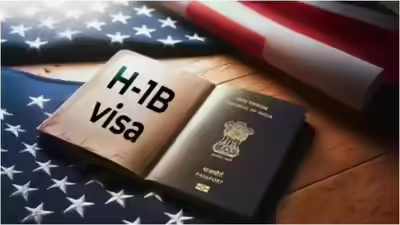The U.S. government has recently introduced significant changes to the H-1B visa application process for 2025. One of the most discussed updates is the introduction of a new registration fee structure that impacts applicants differently depending on their current status. According to the proposed system, individuals who are applying for an H-1B visa for the first time—especially those applying from countries like India—will now be required to pay a non-refundable registration fee of around ₹1 lakh (approximately $1,200). On the other hand, students who have already studied and are residing in the United States will be exempt from paying this additional fee when they apply for an H-1B visa.
U.S. Citizenship and Immigration Services
This new rule has been introduced to make the visa process more transparent and to prevent misuse of the lottery-based registration system. In previous years, the U.S. Citizenship and Immigration Services (USCIS) noticed a surge in fraudulent registrations from multiple companies, many of which were not genuine employers. As a result, thousands of applicants would register multiple times, drastically reducing the chances for genuine candidates. By introducing a higher, non-refundable fee, the U.S. government hopes to discourage fake or duplicate entries and ensure that only serious applicants participate in the lottery.

For Indian professionals, especially those in the technology and IT sectors, this change is a matter of concern. The H-1B visa has long been a gateway for skilled Indian workers to gain valuable experience and career opportunities in the U.S. However, with the new ₹1 lakh fee, the cost of applying for an H-1B visa increases substantially, especially for first-time applicants who are not guaranteed a selection. Since the fee is non-refundable even if the applicant is not selected in the lottery, many candidates might think twice before applying.
In contrast, international students already in the U.S. stand to benefit from this new policy. Those studying under F-1 visas, particularly those who are part of the OPT (Optional Practical Training) or CPT (Curricular Practical Training) programs, can apply for an H-1B visa without paying this extra fee. The rationale behind this exemption is that these students have already been vetted by the U.S. education and immigration systems, making their transition to the workforce smoother and more reliable. It also encourages foreign students to study in the United States and contribute to its economy by staying and working there after graduation.